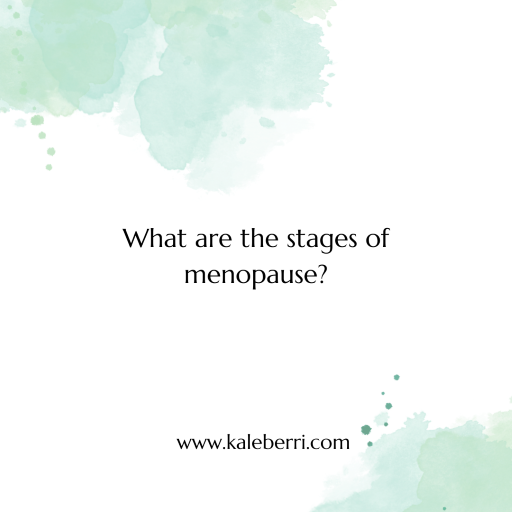How to get a Good Night’s Sleep: 10 Tips for a Restful Night
Sleep is essential for optimal health and wellbeing and reduces risk of chronic disease. This article outlines tips for how to get a good night’s sleep.
Contents
Do you have trouble sleeping?
Chronic poor sleep is common in a modern society. Problems with sleep include trouble falling asleep, difficulty staying asleep, disrupted sleep and poor quality sleep. Poor sleep can be the side effect of increasing work demands, social and family responsibilities, stress, medical conditions, and sleep disorders.
As modern life amounts a sleep debt accumulates, and you may experience reduced performance, increased risk for accidents, and effects on personal heath, both psychological and physical.
What makes a good night’s sleep?
Sleep has two dimensions: duration (quantity) and depth (quality). If you want to have a good night’s sleep, these two factors need to be adequate or your sleep will suffer. Sleep duration alone is not a good indicator of how much sleep needed to feel refreshed in the morning and function properly. Adequate and healthy sleep provides you with daytime energy and feeling refreshed.
How much sleep do we need?
Sleep need varies significantly among individuals and across the lifespan. While most adults report sleeping six to eight hours per night, some otherwise healthy individuals may be short sleepers, requiring less than six hours of sleep per night with the need for catch-up sleep to feel refreshed. Others may report the need for ten or more hours of sleep per night. See below for sleep requirements over a lifetime.

Health conditions and sleep
Anxiety, depression and pain can affect mental health and also cause trouble sleeping.
Additionally a number of other conditions can impair sleep such as:
- Alzheimer’s disease
- Obesity
- Respiratory illness
- Heart failure
- Cancer
Additionally poor sleep increases risk of medical conditions such:
- chronic pain,
- poor mental health – including depression, anxiety
- high blood pressure,
- diabetes,
- heart attack, heart failure or stroke.
- reduced immune system function
- lower sexual function
- cancer.
Structure of Sleep
There are 4 stages of sleep, each has important functions for rejuvenating the body and mind.
- Stage 1 is the initial falling asleep stage and lasts a few minutes.
- Stage 2 is light sleep and lasts approximately 25 minutes.
- Stage 3 is slow wave sleep. This is deep sleep, where the heart and breathing rate slow down and lots of bodily and tissue repair occurs here.
- Stage REM (rapid eye movement) sleep. This is the dreaming phase, the eyes move rapidly, the limb muscles become temporarily paralyzed and heart and breathing rate increase.
As sleep progresses, sleep cycles through these stages several times. During the earlier part of the night cycles have longer stage 3, and in the later part of sleep cycles have longer REM stages.

How can I tell if I have a sleep disorder?
The main sleeps disorders are listed below:
Insomnia
Insomnia is the most common symptom for which adults seek medical advice. Although sleep is a strong highly regulated biological drive, the ability to fall asleep at the desired time and maintain sleep without excessive waking is fragile and influenced by multiple factors. Identification of these factors is at the core of treatment of insomnia.
Sleep related Breathing Disorders
The most common sleep-related breathing disorder is Obstructive Sleep Apnea. In this disorder airflow is obstructed from the nose/mouth to the lungs. The reduction in the airway is due to relaxation of muscles around the airway or excessive tissue blocking the airways. The loss of muscle tone causes less REM sleep due to continual waking during sleep, significantly impairing sleep quality.
Obstructive sleep apnea affects approximately 15-30 percent of males and 10 -15 percent of females and children. More women experience sleep apnea after menopause.
Risk factors to Obstructive Sleep Apnea are:
- Being overweight (BMI< 25 and above)
- Enlarged tonsils and adenoids
- Maxillomandibular malformation
- Smoking
Circadian Rhythm Sleep Disorders
The circadian rhythm is the body’s time-keeping system and is related to exposure to light. It influences the sleep-wake cycle and is critical for sleep health and the optimal functioning of other organ systems. Disrupted sleep patterns can come on for an number of reasons, but the most common causes comes about from lifestyles that disturbs the natural circadian rhythms:
Jet lag disorder:
When time zones are crossed more rapidly than the circadian timing system can adjust; attempted sleep, wake and mealtimes become out of alignment with the body’s circadian phase.
The severity of the misalignment depends on how may time zones have been crossed and the direction of travel. Since the natural circadian cycle is slightly longer than 24 hours, westbound travel generally causes less disruption, as it is easier to delay (sleep later) than advance (sleep earlier) the natural circadian cycle.
Shift work sleep disorder:
There is a mismatch between the circadian system to the desired system for sleep and work schedules. For night shift workers, wakefulness is required at a time when the circadian drive for alertness is dissipating and melatonin secretion is rising.
There are a number of hacks to improve your sleep for shift workers. The BMJ published an excellent visual for managing sleep for shift workers.
Sleeping with shift work
Aim to minimize a sleep debt in the days prior to night shift:
- maintain a regular sleep time
- minimize exposure to bright lights, screens and alcohol in the evenings
- sleep in a dark room
On the first day of night shift:
- sleeping until well rested the day of the first night shift,
- avoiding a morning coffee, and
- taking a 90 minute nap between 2 and 6pm to get 1 complete sleep cycle.
During the night shift:
- take naps of 10-20 minutes during the early part of the shift
- eating lightly
- take caffeine before napping but make that the last caffeine of the night
- avoid caffeine and nicotine in the last few hours of the night shift
- avoid exposure to bright light (wear sunglasses even on a cloudy day
- it is safer to take public transport rather than driving
To reset after night shifts:
- Attempt 90 or 180-minute nap immediately following the shift
- Go outside after waking to increase light exposure
- Aim to go to bed close to the normal time
- Avoid daytime napping in the subsequent days
Restless Legs syndrome
Restless legs syndrome (RLS) is the uncontrollable urge to move the legs, usually because of an uncomfortable sensation. It typically happens in the evening or nighttime hours when you’re sitting or lying down. It can impair sleep.
Sleep Deprivation and Driving
Driving while sleep deprived is not safe. A sleep deprived person has the capacity for driving comparable to driving with a blood alcohol content of 2microg/100mL. Sleep deprived drivers have:
- Slower reaction times
- Less lateral control
- Decreased insight into level of impairment
In the sleep driving study, researchers found that coffee does not produce an improvement when sleep deprived, and instead, performance deteriorated. They concluded that coffee was not an effective countermeasure for sleep deprivation.
Additionally struggling to stay awake while driving despite having adequate duration of sleep could indicate sleep apnea or another sleep disorder so this is important to discuss with your doctor.
Sleep Solutions: How to get a good night’s sleep
There are many things you can do to have a good night’s sleep. Here are some tips that you can initiate immediately, to help you fall sleep and have good sleep quality.

1. Have a regular sleep schedule and rise time
Having a consistent bedtime and rise time leads to a more regular sleep schedules and avoids periods of sleep deprivation or periods of extended wakefulness during the night. Keeping the same sleep time at weekends as during weekdays is also beneficial for maintaining better sleep.
2. Bedtime routine
Having a bedtime routine is a repeated ritual that helps to relax your body and mind to prepare for sleep at night. This serves as a transition from the work and busyness of the day. This can include taking a warm bath, reading a book, journaling or doing relaxation exercises.
Relaxation techniques such as deep breathing or progressive muscle relaxation while in bed help fall asleep easier and get a good night’s rest. Overtime, your body and brain become conditioned to this ritual and it can help you fall asleep faster.
3. Avoid daytime naps
Avoid daytime naps especially long daytime naps lasting more than 1 hour late in the day. This will delay the time you able to fall asleep in the evening.
4. Caffeine and Sleep
Avoid caffeine (tea, coffee, energy drinks, chocolate, cocoa) after lunch -this time window allows for most caffeine to be metabolized before bedtime. One randomized control study shown that consumption of 400mg of caffeine (4 cups of coffee) up to 6 hours before bedtime causes disruption in sleep patterns.
5. Limit alcohol: Insomnia after drinking alcohol
Avoid alcohol for the 3 hours prior to bedtime. Alcohol is initially sedating, but activating as it is metabolized. This means you may fall asleep but as the alcohol is metabolized you wake up.
Alcohol also negatively impacts sleep architecture – i.e. the stages of sleep that you need to go through to sleep better at night.
6. Avoid Exercise before bed
Daytime regular exercise is encouraged to give you a better night’s sleep. In particular exercise 4-6 hours before bedtime, may help improve sleep onset. Vigorous exercise within 2 hours of bedtime is discouraged.
Relaxing exercises prior to bed such as yin yoga may help calm down the body and mind and assist with facilitating sleep.
7. Keep the sleep environment quiet and dark
Noise and light exposure during the night can disrupt sleep. White noise or ear plugs can reduce noise. Using blackout shades or an eye mask can reduce light. Additionally avoiding exposure to television or technology near bedtime, as the emitted light can have an impact on circadian rhythms by shifting sleep time later. Bright light and blue light exposure at night impairs secretion of melatonin and delays the onset of sleep.
Daytime exposure to light
Exposure to natural light during the early morning inhibits melatonin secretion. If you are feeling sleepy in the afternoon, exposure to light via an outside walk can inhibit melatonin, and delay sleepiness till bedtime without delaying the onset of sleep.
8. Use the bedroom for sleep and sex
Avoid working, watching TV or using your phone or internet in the bedroom. Use the bedroom for sleep and sex. This helps the brain associate being in bed with sleeping and helps facilitate relaxation and preparation for sleep.
9. Bedroom clock
Avoid checking time at night. This includes alarm clocks and other time pieces (eg, watches and smart phones). Checking the time increases cognitive arousal and prolonged wakefulness
10. Room temperature
Ensure you keep your room cool or warm enough for sleep. The peripheries need to warm up before sleep onset can occur. If the room is too cool then this will take longer, but if it is too warm it will interfere with onset of sleep and may impair your ability to stay asleep.
Frequently asked questions
What can happen if I don’t get enough sleep?
As stated above you can suffer from an number of sleep related disorders such as insufficient sleep, Insomnia and Sleep Apnea. Some examples of what can happen to you are many and varied. If you are tired during the day and experiencing low energy you should speak to your doctor for more advice and support.
What should I do if I have tried these methods and are having ongoing sleep problems ?
See you doctor to discuss more about this. They may give your further suggestions, prescribe sleep medicines such as melatonin, or refer you to a sleep medicine clinic for further investigations.
References
Afolalu EF, Ramlee F, Tang NKY. Effects of sleep changes on pain-related health outcomes in the general population: A systematic review of longitudinal studies with exploratory meta-analysis. Sleep Med Rev. 2018 Jun;39:82-97.
Drake, Christopher et al. “Caffeine effects on sleep taken 0, 3, or 6 hours before going to bed.” Journal of clinical sleep medicine : JCSM : official publication of the American Academy of Sleep Medicine vol. 9,11 1195-200. 15 Nov. 2013,
Lowrie, J., Brownlow, H. The impact of sleep deprivation and alcohol on driving: a comparative study. BMC Public Health 20, 980 (2020).
Lin CL, Liu TC, Wang YN, et al. The Association Between Sleep Disorders and the Risk of Colorectal Cancer in Patients: A Population-based Nested Case-Control Study. In Vivo. 2019 Mar-Apr;33(2):573-579.
Daghlas I, Dashti HS, Lane J, et al. Sleep Duration and Myocardial Infarction. J Am Coll Cardiol. 2019 Sep 10;74(10):1304-1314.
Shan Z, Ma H, Xie M, et al. Sleep duration and risk of type 2 diabetes: a meta-analysis of prospective studies. Diabetes Care. 2015 Mar;38(3):529-37.
Smiley A, King D, Bidulescu A. The Association between Sleep Duration and Metabolic Syndrome: The NHANES 2013/2014. Nutrients. 2019 Oct 26;11(11):2582.
Stephanie J. Crowley & Mary A. Carskadon (2010) MODIFICATIONS TO WEEKEND RECOVERY SLEEP DELAY CIRCADIAN PHASE IN OLDER ADOLESCENTS, Chronobiology International, 27:7, 1469-1492,
Buscemi N, Vandermeer B, Hooton N, et al. The efficacy and safety of exogenous melatonin for primary sleep disorders. A meta-analysis. J Gen Intern Med. 2005 Dec;20(12):1151-8.
McKenna H, Wilkes M. Optimising sleep for night shifts. BMJ. 2018;360:j5637. Published 2018 Mar 1.






